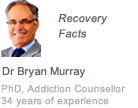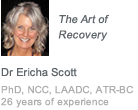Teenagers and Alcohol
There is nothing new or shocking about the link between teenagers and alcohol. By the age of eighteen, many teenagers will already have had some experience of drinking alcohol, whether at a student party, in a bar, club or pub that has a liberal attitude to licensing laws or at home with their parents.
What is shocking though, is the extent to which teenage alcohol consumption has spread and increased within the last fifteen years. The problem of teenagers and alcohol has almost reached epidemic proportions, with teenagers consuming alcohol at earlier ages than ever, and regularly participating in heavy drinking or binge drinking.
There is an innate tendency in teenagers to believe that they are somehow indestructible. The concept of their own mortality does not register and so they are liable to remain indifferent to, or ignorant of, the dangers of consuming too much alcohol.
Teenagers at greater risk from early drinking
It is well known that alcohol can be harmful and addictive in adults, but where teenagers are concerned the dangers posed by alcohol are greater still. The younger a person is when they begin drinking alcohol, the greater the chance that they will have a habitual drinking problem and the associated heath risks in later life.
It is crucial that teenagers are made aware of the short and long-term damage that they may be inflicting on themselves as a result of excessive alcohol consumption. Knowledge and understanding of the ways in which alcohol affects teenagers are the keys to preventing a life beset by alcohol related problems.
Whether you are the parent of a teenager who you suspect of having an alcohol habit that is out of their control, or you are a teenager yourself and recognize that your drinking is becoming a problem, it is easy to find someone that understands and who can help you.
Why do teenagers drink alcohol?
During our transformation from childhood to adolescence and onward towards adulthood, our experiences and interactions with the world around us change rapidly. Our bodies change with the onset of puberty, and our attitudes change as we begin to assert our independence and strive to adopt the characteristics associated with adulthood.
This sense of ‘growing up’ and wishing to fit in to the adult world, when combined with possible exposure to alcohol during childhood (a small taste of beer or wine as a ‘treat’ with Sunday lunch, for example), and with influences such as peer pressure and the widespread marketing and availability of alcohol may all contribute to a teenager’s desire to drink alcohol.
Social interactions and the need for group inclusion play a major role in teenage drinking. Teenagers are at a stage of development during which they wish to experiment with new experiences and are inclined, if not actively encouraged by the behavior and expectations of their peers, to take risks. Where these experiences involve alcohol, such as the recent upsurge in the trend for social binge drinking, teenagers are unlikely to be aware of or pay heed to the potential damage they are doing to themselves.
Particularly at risk are those teenagers who may already have an inherited disposition towards drinking alcohol, where alcoholism pre-exists in a parent or other members of the family.
Teaching children and teenagers about alcohol
Children are influenced by their experiences of the world around them as they grow up. The manner and degree of their exposure to alcohol will determine their attitude towards it. Therefore, parents have the opportunity during the upbringing and education of children and teenagers to instill a sensible attitude towards alcohol.
Inevitably, sooner or later, teenagers will be exposed to alcohol. If your teenaged son or daughter has started drinking it is important to handle the situation sensibly and cooperatively in order to avoid ‘preaching’ or alienating them which may lead to increased drinking as a form of rebellion. While it may be difficult to impose control over a teenager, there are ways in which you can encourage them to handle alcohol sensibly and to reduce the effects of alcohol on them:
There is no need to adopt a heavy-handed or confrontational approach if your teenager arrives home drunk or has been drinking without your approval. Instead, discuss the situation with them at an appropriate time, explaining your feelings about the situation and encouraging them to explain theirs.
Agree mutually acceptable ground rules around parties. If the party is at home, remain close by but not intrusive. If the party is elsewhere ensure that your teenager has a means of contact and has a secure way of getting home after the party.
Reduce the risks of temptation to drink at home. Do not keep alcohol on open display. Encourage positive habits such as not drinking on an empty stomach, not mixing drinks, drinking water or juice to maintain hydration, and drinking slowly.
Hangovers and vomiting are negative rein forcers for teenage drinking. Do not be unsympathetic; your teenager will already be feeling bad and probably regretting their actions. Take the opportunity to ask them how they feel about the hangover afterwards and whether it has affected their attitude towards alcohol. Explain your feelings about the situation.
The risks of alcohol for teenagers
As a rule, the earlier an age at which a person starts drinking alcohol the greater the harm they are likely to cause themselves. For example, people who begin drinking regularly at the age of fifteen are four times more likely than others to exhibit the characteristics of alcohol addiction at some time later in their life.
The body is still developing in adolescence, which means that the risk of damaging vital organs such as the heart and liver is far higher for teenagers who drink regularly. In the last decade, deaths from liver-related diseases have risen significantly in people aged between twenty and thirty, with teenage drinking habits attributed as the cause.
Evidence also suggests a link between teenage drinking and impaired development which may lead to learning difficulties in adulthood.
But it is not only the implications for health that are a cause for concern when it comes to teenagers and alcohol:
- A survey conducted in 2007 found that one in five teenagers admitted driving whilst under the influence of alcohol.
- Averaged out, around four American college students die every day as a result of alcohol related injuries
- 11% of questioned students admitted to participating in unprotected sex after drinking alcohol
- Around 300 American teenagers commit suicide each year as a result of alcohol consumption
The consequences of drinking excessively during teenage years may be long-term physical or mental harm, addiction to alcohol or possibly death. Life is too precious to waste in this way, so if you believe that a teenager’s alcohol habits are putting them at risk, please do not hesitate to help them or to seek help for them.












